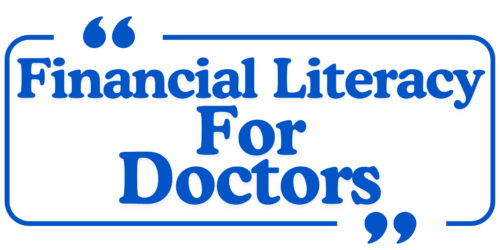Taxes Education Curriculum for Doctors
Overview: This curriculum is designed to provide medical professionals with essential knowledge about tax obligations and strategies. Understanding taxes is crucial for doctors, especially considering their unique financial situations, income structures, and potential deductions. This curriculum aims to empower doctors to navigate their tax responsibilities confidently and optimize their financial outcomes.
Module 1: Understanding Tax Basics
- Target Audience: All doctors, especially early-career professionals
- Duration: 1 hour
Objectives:
- Familiarize participants with fundamental tax concepts.
Topics Covered:
- Overview of the U.S. tax system: federal, state, and local taxes
- Understanding different types of taxes: income tax, self-employment tax, capital gains tax, and estate tax
- Key tax terms: deductions, credits, taxable income, and tax brackets
- Importance of tax planning and record-keeping
Module 2: Income Tax for Medical Professionals
- Target Audience: All doctors
- Duration: 1.5 hours
Objectives:
- Understand how income tax applies specifically to medical professionals.
Topics Covered:
- Tax implications of various income sources: salary, bonuses, and self-employment income
- Understanding W-2 vs. 1099 forms and their impact on taxes
- Tax planning strategies for high-income earners
- Navigating tax brackets and calculating effective tax rates
Activities:
- Case study analysis: Review different income scenarios and their tax implications.
- Group discussion on experiences with income reporting and tax strategies.
Module 3: Deductions and Credits for Doctors
- Target Audience: All doctors
- Duration: 2 hours
Objectives:
- Learn about potential deductions and credits available to medical professionals.
Topics Covered:
- Overview of common deductions: business expenses, education expenses, and home office deductions
- Understanding the Qualified Business Income (QBI) deduction
- Tax credits available for medical professionals: lifetime learning credit, child tax credit, and earned income tax credit
- Importance of itemizing vs. taking the standard deduction
Activities:
- Workshop on identifying personal deductions and credits applicable to participants.
- Group activity: Create a list of potential deductions based on different medical specialties.
Module 4: Retirement Accounts and Tax Implications
- Target Audience: All doctors
- Duration: 1.5 hours
Objectives:
- Understand how retirement accounts affect tax planning.
Topics Covered:
- Tax advantages of retirement accounts: 401(k), IRA, and Roth IRA
- Contribution limits and tax implications of different retirement accounts
- The impact of retirement savings on taxable income
- Strategies for tax-efficient withdrawals during retirement
Activities:
- Personal assessment: Review individual retirement account options and tax implications.
- Group discussion on how retirement planning can influence overall tax strategies.
Module 5: Tax Planning Strategies
- Target Audience: All doctors
- Duration: 1 hour
Objectives:
- Develop strategies for effective tax planning.
Topics Covered:
- The importance of year-round tax planning vs. last-minute filing
- Utilizing tax software and professional tax services
- Strategies for reducing taxable income: charitable contributions, tax-loss harvesting, and investing in tax-advantaged accounts
- Understanding the implications of the Alternative Minimum Tax (AMT)
Activities:
- Create a personal tax planning timeline to prepare for upcoming tax seasons.
- Group brainstorming session on effective tax-saving strategies.
Module 6: Navigating Audits and Compliance
- Target Audience: All doctors
- Duration: 1 hour
Objectives:
- Prepare participants to navigate potential audits and compliance issues.
Topics Covered:
- Understanding the IRS audit process and common triggers
- Best practices for maintaining records and documentation
- What to do if selected for an audit
- Legal implications of tax evasion vs. tax avoidance
Activities:
- Case study analysis: Review audit scenarios and appropriate responses.
- Group discussion on maintaining compliance and record-keeping best practices.
Conclusion and Certification
Upon completion of the curriculum, participants will receive a certificate of completion, recognizing their understanding of tax obligations and strategies tailored for medical professionals. This education will empower doctors to effectively manage their tax responsibilities and optimize their financial outcomes.
This curriculum can be delivered through various formats, such as in-person workshops, online courses, or webinars, providing flexibility for busy medical professionals while enhancing their understanding of tax-related issues.
